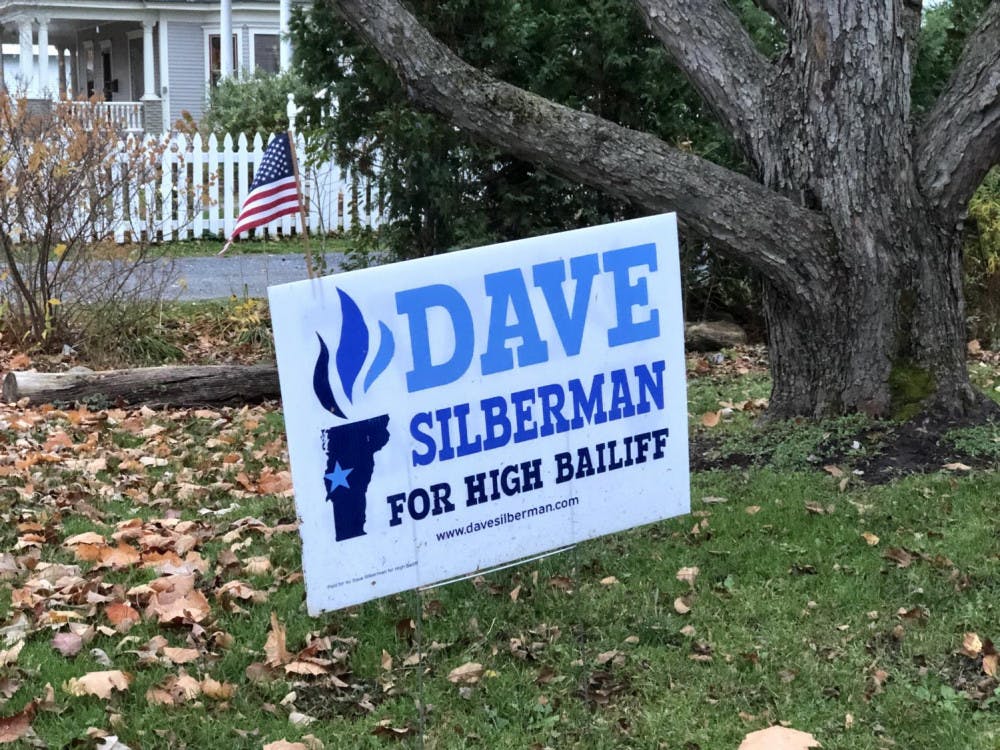Every state has its niche elected positions. Michigan votes for a drain commissioner, who oversees water drainage systems. Texas elects a statewide railroad commission. Some states even vote for their county coroner — the official responsible for determining causes of death.
Vermont has the high bailiff.
Mentioned just once in the state’s constitution and written into the state’s statutes in a sparse line, the high bailiff has one defined role: to arrest the sheriff, if ever necessary. Notorious for its limitations (the high bailiff has no pay, no office and hardly any responsibility), the position is often held by individuals linked to law enforcement, like lieutenants or retired officers.
Dave Silberman has a new idea — one that he says is actually rooted in the core values written into the position when it was established by the Vermont Constitution.
“The framers of the Vermont Constitution decided wisely to have a check on the sherrif’s power and make sure they were held accountable to the law,” he said.
Silberman sees the high bailiff position as an opportunity for civilian oversight over law enforcement. After the events this summer that brought police brutality, abuses of power and systemic flaws into the national spotlight, Silberman says that the importance of law enforcement oversight is clearer than ever.
“My ‘re-imagining’ of this office is not so much a re-imagining as a hearkening back to why this office was created in the first place,” Silberman said. “To put the sheriff under an independent civilian oversight. And that’s exactly what I’m running to do.”
However, the biggest opposition to a high bailiff candidate is often apathy or ignorance.
In 2016, two Democrats ran in the Addison County high bailiff primary. Ron Holmes came out on top with 1,904 votes. In second place, with 1,620 votes, was “blank.” Competitor Peter Newton came next with 1,505 votes.
So, Silberman’s campaign strategy?
“To get those blank votes,” he said. “To make sure people know there’s a position called high bailiff, know what the heck it is and think about why it is that you would want to elect a civilian and not a member of the law enforcement establishment.”
Both of those 2016 high bailiff primary candidates are members of the local law enforcement community: Peter Newton is the Addison County Sheriff, elected in 2019, and Ron Holmes, a former high bailiff, is a 25-year part-time deputy in the Addison County Sheriff's Department (ACSD). Holmes also made a run for sheriff in 2018. He lost to Silberman in this year’s democratic primary for high bailiff.
Now, Holmes is running against Silberman again in the general election, this time as a Republican — he won the republican primary with 186 write in votes. Silberman will also face independent candidate Mike Elmore, a sergeant in the ACSD.

This is Silberman’s first contested campaign, but he knows that it’s unorthodox. His biggest plan for the past few months — to knock on doors throughout Addison County — became impossible during the pandemic. Instead, he focused energy on fundraising, mailing fliers and disseminating yard signs, which have been visible throughout the county.
Silberman is an attorney, lives in Middlebury and has spent the last five years focused on efforts to legalize cannabis in Vermont and increase access to expungement of drug-related criminal history. He decided to run for high bailiff because two years ago, no Democrat ran for the position.
“This office seemed like a good fit for somebody to come in on a platform of criminal justice reform and elevate those issues,” he said.
Silberman sees many failings in the American policing system. He is focused on decriminalizing drug possession and shifting the solution to drug addiction to health and social services rather than “jails and prosecutors and police.”
Silberman also sees expanding social services, housing and transportation as alternatives to policing in addressing the outflows of poverty that affect people in Addison County: homelessness, drug dependency, domestic violence and more.
“We fail to fund these other solutions because we’ve already overfunded the police,” he said.
And, of course, he wants to see police be held accountable for excessive uses of force, changes to how police are recruited and “a change in what we think about appropriate police involvement in our community.”
This summer brought sustained national visibility to systemic issues of policing, particularly after the death of George Floyd and other Black Americans at the hands of police. “But George Floyd was not the first person to be murdered in the streets by police for no reason,” Silberman said. “And he also has not been the last person.”
“It’s not one police department, and it’s not one state — it’s all over the nation. We see, over and over again, whenever there is police misconduct, it does not go punished because we don’t have systems of oversight that work,” he said.
Silberman knows that the powers of the high bailiff are limited, but his distinctive platform is part of a small wave of civilian, criminal justice and police oversight-focused candidates across the state for a position that has largely gone unnoticed for much of its history.
“I’m not going to tell you that electing a citizen as High Bailiff of Addison County is going to fix these problems,” he said. “But electing me will ensure that we continue to shine a very bright light on these problems, and, by keeping the focus on the issue of police accountability, we’re going to be able to move systemic change forward. I refuse to let this issue go.”

Riley Board '22 is the Editor in Chief of The Campus. She previously served as a Managing Editor, News Editor, Arts & Academics Editor and writer.
She is majoring in Linguistics as an Independent Scholar and is an English minor on the Creative Writing Track.
Board has worked as a writer at Smithsonian Folklife Magazine and as a reporter for The Burlington Free Press. Currently, she is a 2021-2022 Kellogg Fellow working on her linguistics thesis. In her free time, you can find her roller skating in E-Lot or watching the same sitcoms over and over again.




